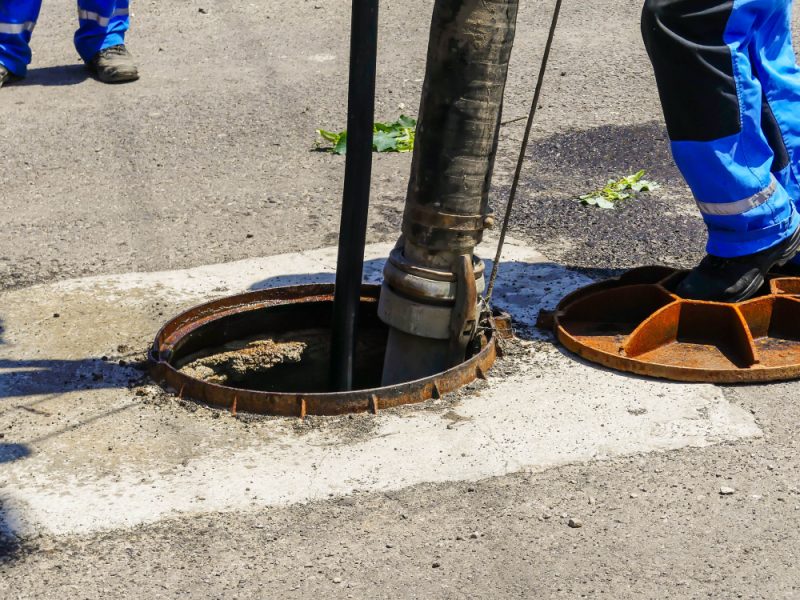How to Properly Care for Your Septic System in Lawrenceville, Georgia
A Septic tank is one of the most beneficial fixtures of your house. In the countryside, suburb, or rural areas, like Lawrenceville, where homes are not equipped with municipal drainage piping systems, septic tanks provide a way to turn the wastewater of your house into groundwater.
Basically, a septic tank comes with septic pipes that are attached to the plumbing of your house. Whatever water is used in your washrooms and kitchen, it flows into the septic tank through pipes. Then, the septic tank operates on the water, creating layers of water, scum, and sludge. The water, after being treated, further travels to the nearby drain field. In that drain field, the water goes through another treatment process with the help of drain pipes and a rock bed. When the water is finally filtered out of its contaminations, it travels through the soil to the groundwater.
In this process, the septic system plays the role of protector of groundwater against the contaminated wastewater. That being said, it is necessary for a septic tank to stay in a fit shape to perform its job well. And that can happen when you maintain and take care of your septic tank regularly. If it isn’t cared for, it can mess up the functionality of the system and cause the tank to break down, creating a wide number of disasters—all of which shall be avoided by you.
Below are the ways that you can properly care for your septic tank.
Contents [hide]
Have Frequent Inspection and Pumping
One of the main causes of malfunctioning of a septic tank is no inspection at all. People install their septic tanks and forget about them; taking no care of them whatsoever. That is why septic tanks start performing badly, which eventually leads to a complete breakdown.
A septic tank of an average household requires inspection every 3 years. That is when the septic tank is being used a fair amount. On the other hand, if the use of the tank is more than it should be, say a septic tank which should regularly be used by 4 people is being used by 8, then the frequency of inspection should be higher.
The process of the inspection involves one or more septic system technicians coming to your house, opening your septic tank, and analyzing its performance to make sure everything is right. An inspector would not only take a look at your septic tank, but would inspect the whole septic system, including pipes, valves, and the drain field. And if anything is not performing how it supposed to, it would be notified to you so you can get it repaired.
As for Septic Tank Pumping, it is required when the amount of solid waste is more than your septic tank can take. The actual job of the septic tank is to separate the solid waste from liquid, then filter the liquid towards the drain field, while the solid waste gets held back in the septic tank. If the piled up solid waste is ignored, it might create a hindrance in the optimum performance of the septic tank. It can eventually lead to the breakage in septic tank walls, which would be followed by an extremely nasty situation. In other words, without regular pumping, the life of a septic tank gets shorter. And the repairs and installations are costlier.
What pumping does is that it vacuums all of the solid content out and allow the septic tank to perform better. Depending upon the size of your tank, it usually needs pumping every 3 to 5 years. If you get your tank regularly inspected, you would know when the pumping is required, and then you can hire a reputable service for Septic Tank Pumping in Lawrenceville.
Efficient Use of Water
One thing that can really trigger the back-to-back problems in the septic tank is if you do not use the water efficiently. For instance, if you are very careless with the water, you will of course have to spend more on the septic tank’s maintenance. That is because the more water it treats, the more it needs to be cared for.
A lot of homes now use high-efficiency toilets and showerheads which only release the required water at once. Water-efficient toilets do not release more than a gallon of water per flush, and showerheads provide the amount of water with low pressure so your septic tank doesn’t get filled rapidly.
One appliance that people use water carelessly on is the washing machine. When you use a large-load machine to wash small amounts of laundry, you waste not only the water but also the electricity. It is only fair that you set your washing machine on the minimum water load if the quantity of laundry is small.
To not deal with this problem, people choose a day of the week to clean all of their laundries at once. While this is a time-, energy-, and water-saving technique in general, it is not best for your septic tank. Too much water at once will hinder its usual speed of performance and might cause malfunctioning. You can spread your laundry throughout all days of the week, but keep the water use to a minimum.
Proper Use of Toilets
Usually, people with houses that have municipal-provided pipelines do not have to worry about what they are disposing of in their toilets as long as it doesn’t stay back at their end. However, people who use septic tanks not only have to worry about drains at their end but also stay concerned over the drains of the septic tank and the drain field towards which their septic tank flows the water. Therefore, they are advised not to throw any garbage in the toilet.
It’s a toilet, not a trash can. Photographs, cigarette butts, wipes (even disposable wipes), toilet paper, and these sorts of things should not be disposed of in the toilet or sink. Because if you dispose of them, they are more likely to increase the solid waste in the septic, disrupt the performance of it, and demand the inspection and pumping of the tank sooner. It can also create clogging in your tank, which would cause it to throw back the waste at your end. To make sure you do not face these problems, use your toilet only for what it is supposed to be used for.
Taking Care of the Septic System Space
Lastly, you need to be careful about not only the internal functioning of the septic tank but also its physical condition. For instance, driving or parking over the space of the septic tank or drain field can damage the walls of the tank and the pipes of the drain field. Similarly, constant movement over the drain field can crack a pipe or two and cause leakage.
As for planting, make sure that you plant at a fair distance from the drain field where the roots of the plant do not collide with the pipes of the field—not currently and not in future. Otherwise, pipes can start leaking and create disruption in the system.
That was all you needed to know about caring for your septic tank. If you doubt anything in your septic tank, contact a professional so they can advise you better.




